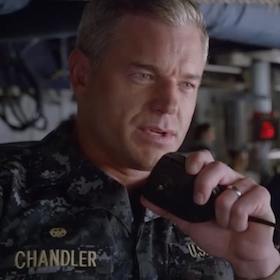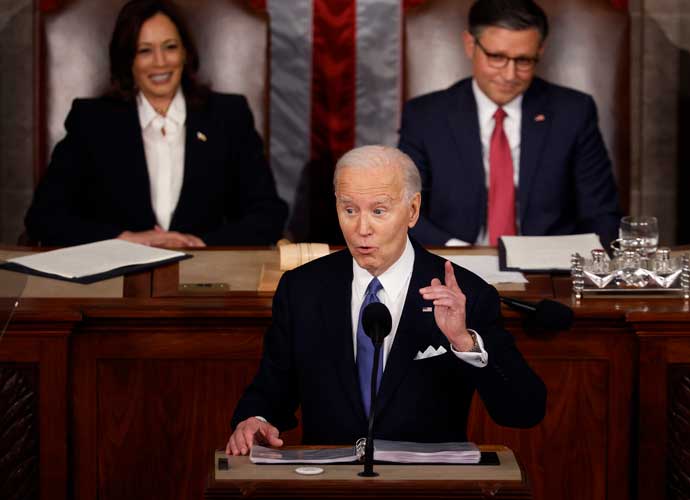'The Last Ship' Review: Strong Actors Stuck With Cardboard Characters

3.5/5
The Last Ship, TNT’s newest series, is based loosely on the novel by William Brinkley, and thematically, there are connections to Ron Moore’s Battlestar Galactica to be made. Both series have a sci-fi heritage and involve a rag-tag group of survivors coming from the aftermath of a civilization decimating holocaust. Where BSG had robots with nukes, The Last Ship has a virus. Both make use of a ship with heavy naval protocols. The differences in setting are obvious enough and do not need mentioning, but the main difference, the difference that matters is the state of the character work that divide these two series.
Battlestar Galactica had a character-first policy; development from characters on a show to people on a show was a primary task for the writers. In The Last Ship, the plot comes first which isn’t a bad thing in its way. Unfortunately, without being given characters to care about, the tension begins to fade. Dramatic moments — the suicide and subsequent funeral for a shipmate as well as a break-up between Danny Green (Travis Van Winkle) and Kara Foster (Marissa Neitling) fall flat, despite the hardworking soundtrack and actors, because these moments were never really earned. There are numerous time jumps that make for economical, if jagged, plotting — like finding the USS Nathan Drake traveling from Antarctica to France in the span of a blink. Rather than jumping quickly from plot point to plot point, the time in between would have been better spent establishing the main cast of characters so that when they’re in danger we’ll feel actual worry for them.
Some characters are given a minimum of room to be discovered: Danny Green’s breakdown after Franklin’s suicide stands out and likely informed on his later decision to break up with Kara, but both scenes were brief and took place too early for any of this to really matter. Certain other relationships are mentioned — wives, girlfriends, boyfriends, family, kids — but are there only to establish motivations for characters and do not add much of anything as far as depth. One of the greatest examples of this was for Adam Baldwin’s Mike Slattery. He — off-screen! — receives news that his son died from the virus. He mentions that he’d rather spend time working than mourn. It makes sense, but the fact of his dead son never actually becomes relevant again, nor does it change anything about his character or the way he operates for the rest of the episode, is ridiculous. Now, this may change as the series goes on, and I really hope it does because the cast — especially for an action show — is seemingly comprised of good actors looking to tell an interesting story.
And the story is a tense one. The claustrophobia of the ship and paranoia of operating on a planet that now seems unfamiliar, with no higher command structure to walk this ship and crew through the mire, permeates each script and keeps the episodes moving and increases the desire to watch more. Showrunner Hank Steinberg keeps the military tactics and jargon in the script, leading to moments that are authentic, which keeps the sci-fi of the plot from getting too far out of hand. We believe the soldiers easily capable because we buy how well trained they are. Stars Eric Dane, Adam Baldwin and Charles Parnell all have the chiseled jawlines and set eyes of military men that at once make them powerful and dangerous. Their commanding presence lets the audience know before a single word is spoken that these are the men that run the ship.
While certain logical gaps exist — someone trusted the Gitmo detainees? These detainees speak perfect English? Was there really time for a one-liner? Isn’t the captain’s place on the deck and not out in a virus infected area with irritated al-Qaeda soldiers? — it’s the focus on military code and strategies that keeps the tension high and the plotting quick. Dane’s Tom Chandler has to make the hard choices; he places lives on the line, sometimes on suicide missions, and in the case of Dr. Tophet (played by a desperate and terrified Sam Spruell), Chandler’s actions may have led to the execution of a man’s family. All this is done in the name of a greater good (the modus operandi of all action thrillers), and so far the show hasn’t copped out in detailing the repercussions of actions.
Almost all series, especially in their first seasons, struggle with finding its voice and balancing what the show needs versus what it has and where it needs to go. The concept of balancing character and plot will likely be an ongoing problem for the show. It certainly has the right ideas for character arcs but lacks the follow through to carefully thread them over a sustained period of time. Currently, the show is caught in between two genre pieces: 24 and the short-lived Last Resort. The Last Ship has the plotting and action similar to 24 but doesn’t have the character depth Last Resort did, which makes the sudden jolts of human interaction clunky. In a series about the remnants of humanity, it would be nice to have actual humans on the show.
RELATED ARTICLES
Get the most-revealing celebrity conversations with the uInterview podcast!







Leave a comment